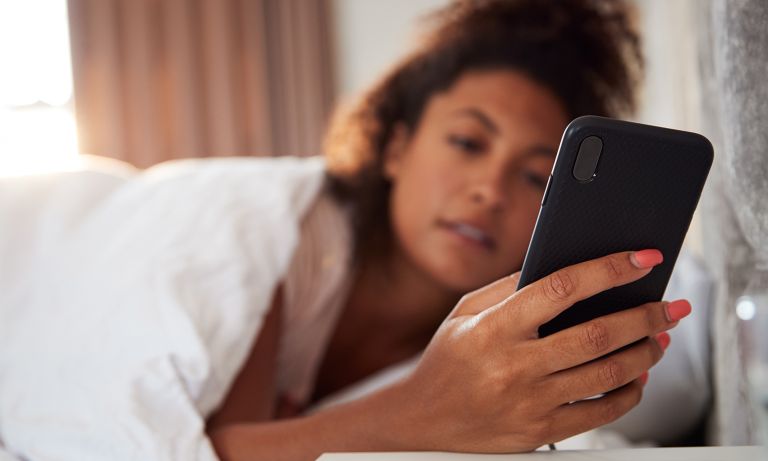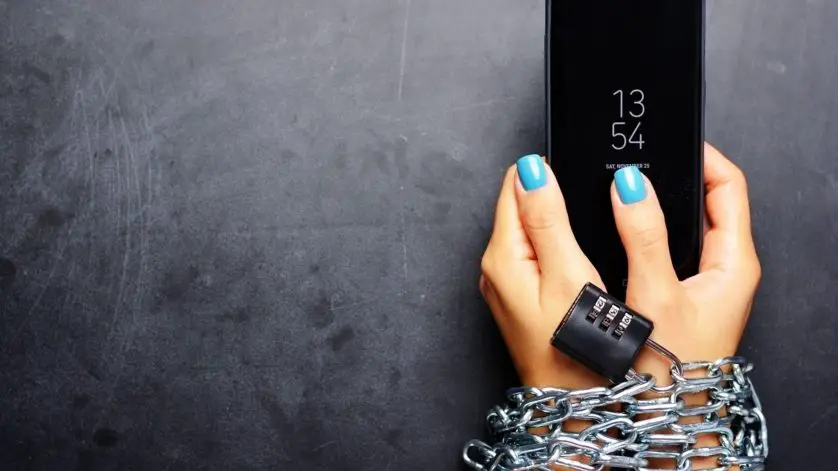The mobile phone is partly to blame for everybody sleep problems. Researcher Aina Westrheim Ravna had to deceive the body’s reward system to become less dependent on the mobile phone.
Sleep problems are increasing in human life, according to Professor Ståle Pallesen at the National Competence Center for Sleep Disorders.
As many as one in three adults struggle with sleep approximately weekly, and those who have chronic sleep problems also called insomnia, have become more numerous, according to the Directorate of Health – EU.
Many factors in your life can cause you to struggle with sleep.
– We have social media, computer games and video games. And the distinction between day and night is weaker than it was in the past. We have a constant overload of information, says Ståle Pallesen.
– In addition, a number of people experience greater performance pressure than before, which makes them worry and unable to fall asleep, he says.
Mobile phones can cause poor sleep
In a study from 2018, Stale Pallesen and colleagues confiscated the smartphones of 60 participants for an entire weekend and compared them with an equally large group who used their mobile phones as usual.
The reactions suggested that abstinence from the telephone may cause withdrawal symptoms similar to those seen by researchers in people who are addicted to drugs, according to the study.
But you may want to refrain from using a mobile phone in the bedroom.
Instagram, Facebook and surfing on the bed are connected to both a possible delayed circadian rhythm and it can make you sleep worse, according to an article from the University of Bergen.

Researcher felt addicted to the cell phone
If it is your little tech friend who never goes to bed, who prevents you from sleeping at night, there may be advice.
A natural place to start is with dopamine, the drug that operates at the core of all addiction.
– I myself have felt dependent on my mobile phone, says Aina Westrheim Ravna to forskning.no.
Westrheim Ravna is a professor at the Department of Medical Biologist at UiT – Norwegian Arctic University.
She researches the effects of drugs on the body. But when she received her doctorate in 2003, it was largely dopamine that was the topic.
Dopamine is linked to the brain’s reward system.
And when Westrheim Ravna felt that the mobile phone was starting to take over, she did something that might have fooled this system a bit.
The brain learns
In a way, we can say that dopamine continuously evaluates what you do.
If you expect something to be good, and the experience lives up to expectations, the level of dopamine increases, and this activates other places in the brain that give us pleasure. Thus, we are motivated to do it again.
If your action does not live up to expectations, dopamine levels will drop and you may get the feeling that what you did was not so good. This remembers the brain.
– The reward system is very old and is deep in the brain. And it has been essential for us and the animals to survive as species, says Westrheim Ravna.
The system ensures that you cover basic needs such as food and sex.
But at the same time, it adapts to each and every one of us by repeatedly exposing ourselves to things we like and dislike, in a simple way.
Eternal craving for reward
– If you acknowledge what is happening in the dopamine system, it may be easier to use it for something positive, says Westrheim Ravna.
Unlike in earlier times, there are almost no limits to dopamine triggers in our environment.
And then we have to use common sense and tricks to choose which impulses we should indulge in – but often it requires a lot of effort.
In the self-published book Operation Self-Discipline, author Agnes Ravatn describes it as follows:
The battle is straight between an emotion-driven, muscular baboon who wants everything that is good in the world, here and now, and a rational, but a lethargic human being who wholeheartedly wants to work, quit and smoke and eat healthy, in order to eventually live a fairly good life.
In the book, Ravatn explores measures that facilitate modern apes to achieve this. One of her many tips is to put her cell phone in another room.
Aina Westrheim Ravna found her own solution.

Swapped scrolling with the podcast
– It may be wise to replace the behaviour with something more exciting, she says.
You can see yourself forcing your gaze from one temptation to another.
– For me, it has worked well to listen to podcasts, and then I only get the sound of the smartphone, and it could just as easily have been from an old cassette player.
– I am currently listening to Sherlock Holmes radio plays on NRK. And I like jazz and philosophy, so I listen to the program Studio Socrates. Chatter programs do not work for me, but maybe for others! The point is to do something that the dopamine sticks to, she says.
– Did you think: Now I will channel my dopamine in another direction?
– Yes, I felt that my dopamine was bubbling off my cell phone and that I had to limit myself. Now I have no problem with it in the evening anymore. But it is clear that we would have needed a larger experiment with many people if we were to find out if it worked for more people.
Westrheim Ravna did not research mobile addiction himself but is sceptical about cutting mobile use.
– It may make the craving extra strong, she says.
Overfocus with sleep buttons
Paradoxically, the mobile phone offers apps that help you monitor your sleep.
But controlling too much with sleep can have a side effect, says Pallesen to forskning.no.
– You can get an over-focus on sleep, and then you can start to stress and think: Now I sleep too little.
– And we see that sleep is often something you get when you do not think so much about it. Those who have insomnia often focus on sleep most of the time.
But if you just want to stop scrolling in the evening, and if the dopamine trick of Westrheim can be transferred to your life – you can try to imagine sleep even more attractive than the phone.
For example: Wouldn’t it have been lovely to wake up happy and rested?

Hope more people start taking sleep seriously
Pallesen has observed sleep in Norway for a long time. Is he worried?
– I really think it can get better. Awareness of sleep has increased. But people have not yet realized how important sleep is. We see that knowledge increases, but the behaviour that is necessary to get more and better sleep changes to a lesser degree.
– This is the stage we are at now, but I hope that more people start to take sleep more seriously in the next stage, he says.
Adults normally need between seven and nine hours of sleep. But there are individual differences, says Pallesen.
– Some manage with a little less than seven hours, while others need more than nine hours. But for most people, the recommendation of between seven and nine hours probably applies.






